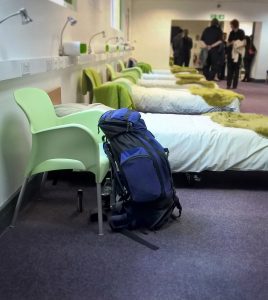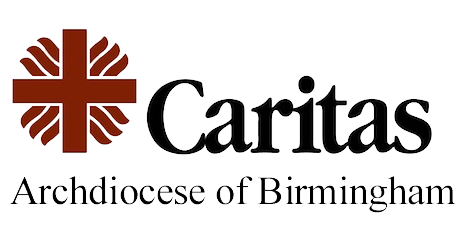
Located in Birmingham, Tabor House offers shelter, safety, and support to people experiencing homelessness.
As well as providing accommodation, Tabor House supports guests to move away from the streets.
The project accepts men and women, people with dogs, people who can claim benefits, people who have been sanctioned and those with no recourse to public funds. It cannot accept people who are dependent on drugs or alcohol. Guests come to Tabor House via a referral – it is unable to admit people who walk in off the streets.
A unique part of Tabor House is offering a step-up to guests and ensuring they have somewhere to go at the end of their stay – no-one will be moved on or made homeless,
Support offered at Tabor House
As well as hospitality and befriending, the project offers mentoring to guests who are ready to move forward. The mentor works with the guest on a weekly basis, providing holistic support that is tailored to their needs and strengths. Working with local agencies and experts, they support the guest to access the services they need to achieve their personal goals.
Support can include help with reading and writing skills, health checks, support to overcome addiction, employability training and much more. Having this help means guests are more likely to engage with services leading to rehabilitation, more permanent accommodation and, eventually, independent living.
How to access support
Please call Tabor House on 0121 647 5106 to discuss referrals – a member of the team will be happy to speak with you.
If you need help or are concerned about someone sleeping rough, contact StreetLink on 0300 500 0914. If someone is ill or in immediate danger, call 999.
Volunteering at Tabor House
Tabor House is managed by a small staff group, supported by a large team of volunteers, who provide mentoring and befriending, hospitality, and the support to meet guests’ practical needs.
There are a range of volunteer roles and different shifts available. We are particularly looking for people who can volunteer overnight.
To find out more, please call 0121 647 5106 between 10am and 1pm Monday to Friday.
Background to Tabor House
In recent years, Birmingham has seen an 80% increase in the number of people sleeping rough. Estimates suggest there could be up to 200 people sleeping rough in the city, possibly more.
If a person has no entitlement to benefits, finds it difficult to engage with social workers and other professionals, is unable to stay in hostels due to fear and past experiences, or has no recourse to public funds, they will sleep on a street, in a porch or in a car park.
In 2015, a working group made up of local charities and homelessness specialists began looking for ways to support people who were sleeping rough in the city. The working group was comprised of the Catholic Archdiocese of Birmingham, Father Hudson’s Care, Housing Justice, corporate researched the need, philanthropists, the Birmingham Rough Sleepers Team, Midland Heart and other local homelessness specialists. Over two years, they mapped the need, carried out a consultation, researched the approaches of other night shelters in supporting their guests, and planned for the set-up of a night shelter in Birmingham.
With the support of St Anne’s parish church, Tabor House opened in 2017 and in doing so became Birmingham’s only permanent night shelter. They operated with six beds for a six-month pilot and expanded to nine beds in 2018 and eventually to eleven beds. These numbers were chosen through research and liaison with other night shelters nationally and the Churches’ Winter Night Shelter co-ordinated by Thrive Together. The careful expansion of support enabled the staff at Tabor House to ensure they could continue to provide the high level of support needed.
In 2020 during the Coronavirus outbreak, the project moved temporarily to a local hotel so it could continue to support guests while following Government guidelines on social distancing. To enable it to re-open, Tabor House was redesigned to follow new guidelines and ensure guests could continue to stay safe. The project reduced capacity within Tabor House to house eight people in separate bedrooms. It changed its approach from being a night shelter where guests would leave during the day, to being permanently open for guests. It now offers 24/7 accommodation for guests. The project has also secured a lease on a nearby building containing three bedrooms, so nobody was made homeless as a consequence of the changes.
The project is managed by the iShelter Management Committee, made up of representatives from the key partner organisations.

